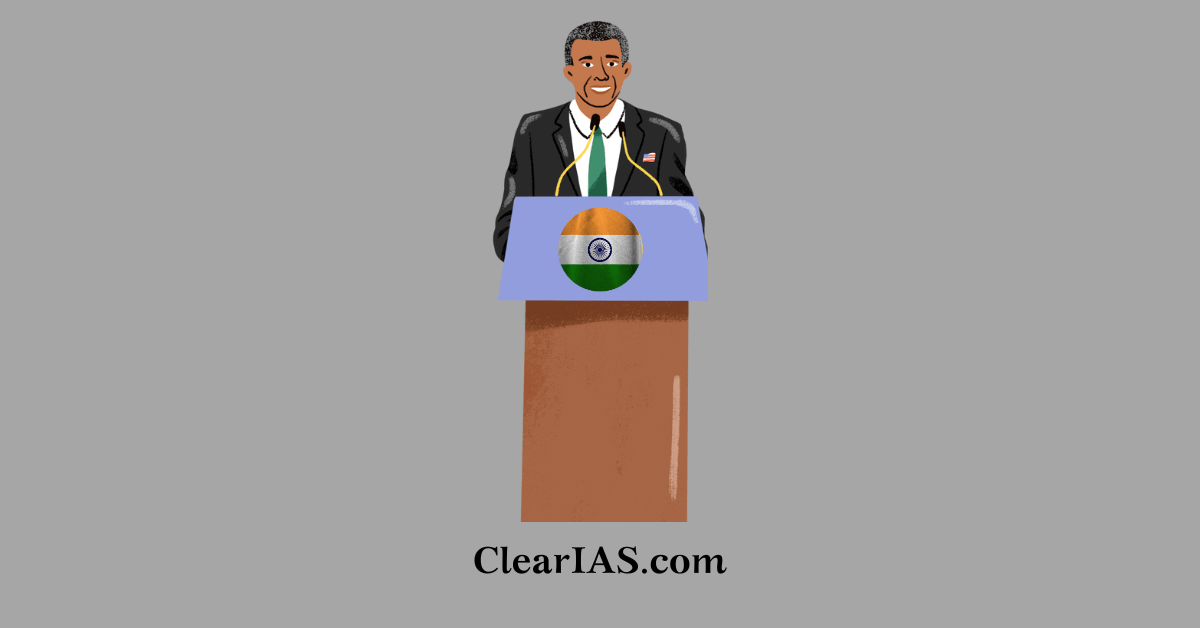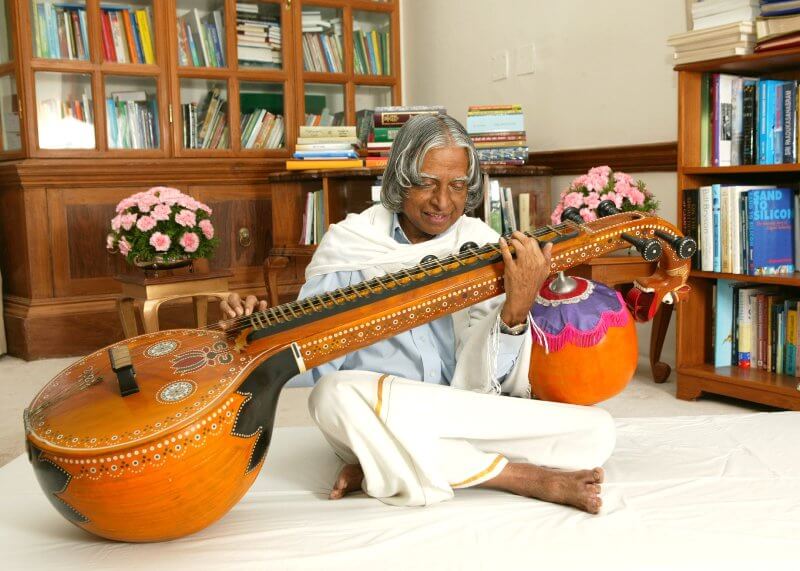
Indian President is not a ceremonial head, unlike in many other countries.
All important decisions regarding the country are taken in the name of Indian President, though most of these will be based on the binding advice given by Council of Ministers(CoM), as per Article 74 of Indian Constitution.
But there are certain exceptions, where he can use his discretionary powers. Let’s learn more about that.
Discretionary powers of the President: Not based on the advice of CoM
The discretionary powers of the Indian president are not explicitly mentioned in the Indian constitution. But cases, where the Indian President do not act on the advice of CoM, can be understood if one carefully read the provisions related to the Indian President.
The cases of discretionary powers are as below:
#1: Suspensive Veto:
The President has discretionary power when he exercises suspensive veto ie. when he returns a bill (not money bill) for reconsideration of the parliament.
However if the bill is passed again by the Parliament with or without amendments and presented again to the President, it is obligatory for him to give his assent to the bill.
#2: Pocket Veto:
This is not a provision mentioned in the Indian constitution, but this is a possible situation when the President of India can use his discretionary power. In this case, the President neither ratifies nor rejects, nor returns the bill, but simply keeps the bill pending for an indefinite period.
As the time limit within which the President has to take the decision with respect to a bill presented to him for assent, has not been mentioned in the constitution, in effect the inaction of the President stops the bill from becoming an act.
#3: President can seek information from Prime Minister:
Under article 78 the President enjoys the right to seek information from the PM regarding the administration of the affairs of the union.
Under the established convention, the President has the right to warn or encourage the Council of Minister (CoM) in the exercise of its power.
#4: Case of no sitting of both houses:
Under Article 85, the President can summon each House of Parliament to meet at such time and place as he thinks fit, to ensure that six months shall not intervene between its last sitting in one session and the date appointed for its sitting in the next session.
#5: Case of no majority:
When no political party or coalition of parties enjoy the majority in Lok Sabha, then the President has discretion in inviting the leader of that party or coalition of parties who in his opinion is able to form a stable government.
#6: Case of no-confidence with CoM- dissolving Loksabha:
It is for the president to decide if he should dissolve Loksabha or not when CoM loses the majority in Lok Sabha.
Note: The President can dissolve Lok Sabha only on the advice of CoM but the advice is binding only if the government is a majority government.
#7: Case of no-confidence with CoM- dissolving CoM:
It is for the president to decide if he should dissolve CoM or not when CoM loses the majority in Lok Sabha.
#8: Case of a caretaker government
A caretaker government does not enjoy the confidence of Lok Sabha and hence it is not expected to take major decisions but only to make the day-to-day administrative decisions. It is for the President to decide the day-to-day decisions.
The advice given by CoM binding on Indian President: Article 74
Article 74 of the Indian Constitution says that
- (1) There shall be a Council of Ministers with the Prime Minister at the head to aid and advise the President who shall, in the exercise of his functions, act in accordance with such advice:
Provided that the President may require the Council of Ministers to reconsider such advice, either generally or otherwise, and the President shall act in accordance with the advice tendered after such reconsideration.
- (2) The question whether any, and if so what, advice was tendered by Ministers to the President shall not be inquired into in any court.”
Powers exercised on the advice of CoM (non-discretionary powers)

President of India is vested with Legislative, Executive and Judicial powers. But as the advice given by CoM is binding on Indian President, in reality, most of these powers rest with the CoM; but decisions are taken in the name of President of India. See some examples.
- President’s rule – He can rule the whole nation or individual states at times of emergency. The President can declare State, National and Financial Emergencies. Punjab, Jharkhand, Jammu and Kashmir and many other states have been under President’s Rule.
- Commander-in-Chief of Indian Armed forces – The President is the Commander-in-Chief of the Indian Armed Forces.
- The President appoints our State governors, Supreme Court and High Court Judges, and the Chief Justice.
- The President can summon and dissolve parliament sessions.
- A ‘bill’ passed in the parliament can become an ‘act’ only after the President’s approval.
- The President of India has the power to reduce the degree of punishment or pardon criminals – even death sentences can be absolved on appeal.
- The President is the head of Indian State while Prime Minister is the head of Indian Government.
- Ambassadors and High Commissioners representing our country are appointed by the President.
- President appoints the Chief Election Commissioner and other Election Commissioners.
- The President delivers the opening address for the first session of the parliament, as well as the first session of a newly elected government, defining the policies of the government.
- IAS or IPS officers (All India Services) by the President of India, based on the advice of UPSC.






why president of India is consider only a nominal executive?
because president,all the power which is mention above can exercise only on the advice of council of minister (except some discretionary powers).
what english u r writing. improve urs language. for ur gng 2 be civl servnt
His language is better than yours.
India is a Democratic nation. Major power is vested in the hands of the government which is choosen by citizens of our nation. Council of Ministers have executive role and are accountable to Lok Sabha(elected people’s representative).
If president is given real executive role in government, then it will become authoritative and contradicts Democratic nature of Indian nation. That’s the reason why president acts based on the advice of council of minister(art 74) though having some discretionary powers.
Sir all the notes here are sufficient for polity? I mean more have to be covered or all done.
Somebody said that Indian president is as like a rubber stamp but I say that there have no authority of any one to pass any bill expect money bill without this rubber stamp…
Who can recommend president to extend one year of ruling government
is suspensive veto a constitutional discretion? if not why did they amend the article 111 by 44th constitutional amendment act to make suspensive veto a one time use instrument?
No, the President acts on the report of the Governor (of the respective State) or any other source. Moreover, the proclamation must be approved by both the Houses withinh two months from the date of its issue.
exactly..and the information given is absolutly correct..😀
In case of summoning a joint session can the President use his discretionary power or he acts at the advice of the council of ministers (COM)? If he acts on the advice of the COM, then why is it so that the joint sitting has been invoked only thrice since independence?(As it is obvious that the COM would always advise for a joint sitting to pass a government bill)
Is it possible for the president to decide if he should dissolve CoM or not when CoM loses the majority in Lok Sabha ?? How?
Constitution empower the president of India to exercise discretionary power? Because in a test series it is mentioned that Constitution has empowered only governor with discretionary power not president
1st of all it has to be mentioned that the president don’t have any constitutional discretion rather he have some situational discretion power.
If the COM losses the majority in Lok Sabha, the President has no other option but to dissolve the house.
Plzz ignore the grammatical errors (I don’t think there is any) because this answer is written by the student of class 10th.
These are not President’s discretions, there are none mentioned in the constitution. Please refer to Rao v. Indira , SC judgement. He is always to act on the aid and advice of CoM, while it is enjoying the confidence of the house.
Wrong, President has no discretionary powers, except some situational discretion arising due to the parliamentary conventions.
The real power vested with people of India and all acts of govt have to be taken in the name of President . But via election power goes to Govt. And for this reason President has to listen to the advice given by COM headed by PM
1.) From all the subjects of GS1 – GS1V, which topics to be skipped?
How will president act when there is a proclamation of emergency and House of People is dissolved? Isn’t it a discretionary power?